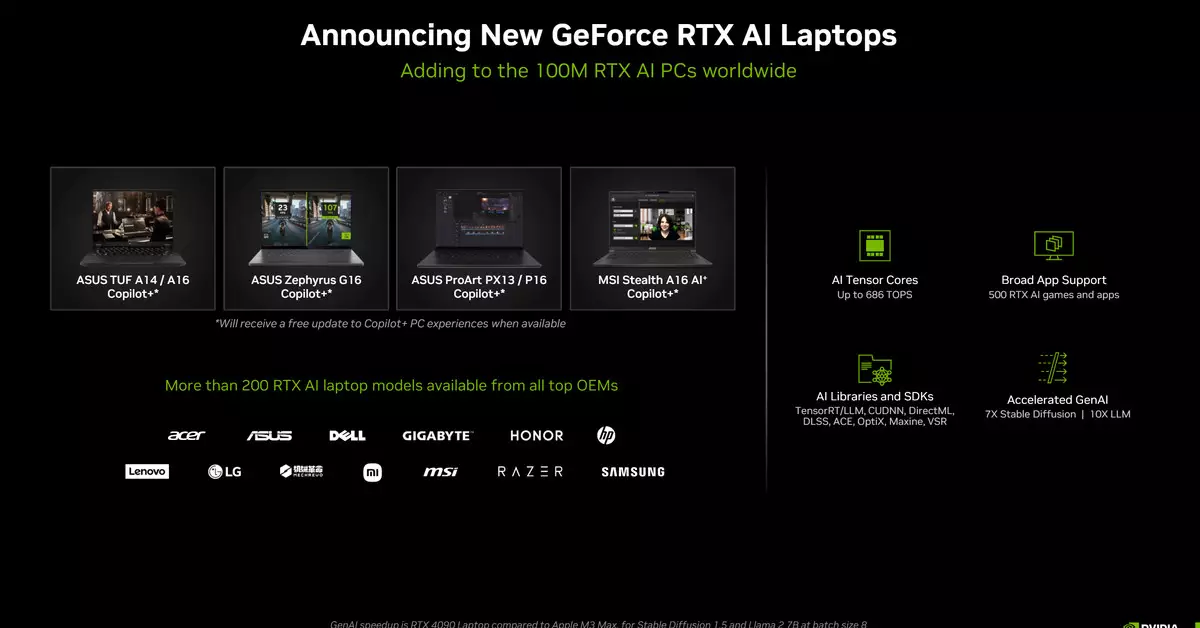Nvidia and AMD are on the verge of launching gaming laptops that will feature the AI Copilot Plus capabilities recently unveiled by Microsoft for Qualcomm-powered laptops. This move signifies a significant shift in the industry towards harnessing the power of artificial intelligence in gaming laptops. Nvidia has hinted at the upcoming release of “RTX AI PC” laptops from manufacturers like Asus and MSI, featuring high-end GPUs and Windows 11 AI PC capabilities. On the other hand, AMD is gearing up to introduce its latest Strix CPUs for these laptops.
The introduction of AI Copilot Plus features in gaming laptops opens up a realm of possibilities for developers and users alike. With the integration of advanced AI capabilities, users can expect enhanced performance, efficiency, and overall user experience. The collaboration between Nvidia and AMD in this endeavor signifies a shift towards prioritizing AI-powered tasks in laptops, setting the stage for future innovations in the gaming industry.
As Microsoft focuses on offloading AI models to NPUs, Nvidia is positioning itself to leverage its GPUs for AI tasks on PCs. The branding of “RTX AI laptops” by Nvidia highlights the company’s emphasis on the capabilities of its GPUs for running heavy AI workloads. With the launch of the RTX AI Toolkit and collaboration with Microsoft on AI models for Windows 11, Nvidia is solidifying its position in the AI-powered laptop market.
The development of AI Copilot Plus features and the RTX AI Toolkit represent significant technological advancements in the integration of AI in laptops. Developers now have access to tools and SDKs for model customization, optimization, and deployment, enabling them to enhance AI capabilities in their applications. The collaboration between Nvidia and Microsoft on AI models for Windows 11 further demonstrates the potential for AI-powered features in future applications.
With NPUs currently offering around 40 TOPS performance and Nvidia’s PC GPUs capable of over 1,000 TOPS for AI acceleration, there are clear performance differences for developers to consider. While NPUs excel at power efficiency and smaller models, GPUs can handle larger models with higher performance, particularly in PC desktops. This disparity in performance highlights the importance of choosing the right hardware for specific AI tasks and applications.
The launch of gaming laptops with AI Copilot Plus features by Nvidia and AMD represents a significant step forward in the integration of artificial intelligence in the gaming industry. As developers continue to leverage AI capabilities in their applications, users can expect enhanced performance and efficiency in their gaming experiences. The competition between NPUs and GPUs in the AI-powered laptop market underscores the importance of choosing the right hardware for specific AI tasks, paving the way for future innovations in the industry.


Leave a Reply